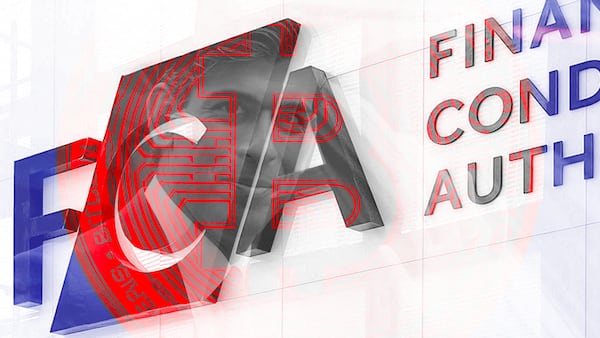- Kraken’s Blair Halliday is bullish about the exchange after it faced a slew of setbacks.
- Halliday discusses layoffs, the US regulatory crackdown and the potential of the UK’s crypto opportunities.
Blair Halliday was playing coy.
Asked when Kraken may go public, Halliday, the cryptocurrency exchange’s UK managing director, danced around the question.
“I’ve got shares in Kraken and I’d love to have some inside scoop,” he told DL News in an interview. He added he had no news to share.
When asked if Kraken was planning on raising more money, he said: “As a general policy, we don’t comment on financing strategies.”
Rival IPO
Ever since rival exchange Coinbase executed an initial public offering in April 2021, its smaller rival has been seen to be itching to follow suit. Jesse Powell, Kraken’s co-founder, said in June that year that the world’s third biggest crypto exchange planned to go public within 18 months.
Over 2021, Kraken added 42 new tokens to the exchange, grew and paid out over $500 million in its staking service, sponsored festivals, and hired over 1,100 employees.
Then the bottom fell out of the crypto market last year. Over the last 12 months, the company has fired thousands, paid a $30 million penalty to US regulators, and torn up its staking programme to appease Washington. If that wasn’t enough, Kraken closed international offices in Asia and the Middle East, and went mum on its IPO plans.
Now something may be stirring, even as the crypto industry struggles to find its footing.
NOW READ: Zhong’s heist of 50,000 Bitcoin gives way to new ‘industrial’ era in crypto crime
“It’s a challenging market situation,” Halliday said in a wide-ranging interview that covered layoffs, why Powell stepped down as CEO in April, and the “de-banking” of crypto firms amid a regulatory crackdown.
‘I’m not a fundamentalist’
Halliday, a former fraud officer at NatWest Bank and compliance executive at crypto players Gemini and Circle, joined Kraken in October. He’s steeped in the ways of both TradFi and DeFi.
“I’m not a fundamentalist, nor was I a fundamentalist in fiat,” he said. “I am a humanist, and somebody that sees opportunity and possibilities in enabling people to grow unrestricted from boundaries and jurisdictional prejudices. Crypto is a great equaliser.”
Halliday joined at a tumultuous time for Kraken and the crypto industry at large. In June, The New York Times reported that Powell had made several insensitive comments internally about race and gender.
‘Our company decisions are never driven by media narrative. Jesse is still actively involved in the business as chairman of the board.’
— Blair Halliday
In September, Powell announced plans to step down as CEO and become Kraken’s new chair as a way to focus more on industry advocacy. He was succeeded by David Ripley, Kraken’s longtime chief operating officer.
“Our company decisions are never driven by media narrative,” Halliday said. “Jesse is still actively involved in the business as chairman of the board.”
Meanwhile, the $60 billion implosion of Terra Luna and plummeting investments and trade volumes, and regulatory uncertainty have shaken the industry.
The failure of Sam Bankman-Fried’s FTX crypto empire in November forced Kraken to “truly evaluate what was happening in the market” and ensure it could cope with the fallout, Halliday said.
“Kraken took some pretty serious and strong decisions,” he said.
Those included firing 30% of its global workforce — about 1,100 people — which was almost equal to the number hired in 2021. Kraken is not alone. An estimated 30,000 crypto workers have been laid off since April 2022, including at pacesetters such as Coinbase, Crypto.com and Gemini
NOW READ: Bitstamp CEO on 30% staff cut, the crypto meltdown, and why ‘we’re the good guys’
Ex-Krakenites slammed the redundancies as “savage,” saying they discovered they lost their jobs when they were locked out of their company accounts, Financial News reported.
Kraken offered 16 weeks pay for all departing Krakenites and four months of healthcare coverage where eligible. The exchange plans no further layoffs, Halliday said.
Despite the cull, Kraken’s review of 2022 painted a bullish picture. It highlighted a new NFT trading platform and Pro trading service, the over 130 new tokens listed on the exchange, and the $10 million donated to aid clients impacted by Russia’s invasion of Ukraine.
Closing offices
But more setbacks followed. In December, Kraken announced plans to close its operations in Japan. In February, it similarly shuttered its Abu Dhabi office.
Moreover, the FTX scandal emboldened US regulators to launch an avalanche of enforcement actions against top-tier crypto firms such as Binance, Coinbase and Paxos.
The crackdown also swept up Kraken. In February, the exchange closed its US staking service and paid $30 million to settle an SEC enforcement action charging it with failing to register the offering as a securities exchange.
While some insiders were concerned, they understood that “there are always going to be instances of regulatory incursion, or investigation because crypto is no different from banking and any other industry,” Halliday said.
“Firms such as Kraken are not necessarily the ones that people should be concerned about — we’re the ones that cooperate with regulators,” he said.
The US regulatory climate has raised the possibility of an exodus by crypto firms to less restrictive nations. When asked if Kraken may relocate, Halliday said the San Francisco-headquartered exchange is “not a US firm.”
“We’re a global crypto firm,” he said, noting it has offices in “the UK, Ireland, and further afield.”
‘Pumped’ about the UK
Halliday said he is bullish about the crypto industry’s potential in the UK.
“I’m super, absolutely pumped about the opportunity that crypto has in the UK — more so than maybe anywhere else globally,” Halliday said.
Kraken isn’t alone — investors injected over $230 million into Britain-based projects in the first quarter.
NOW READ: London’s crypto hub status may slip to ‘not even number three’ after Brexit deal
The comments come a year after the UK government pledged to transform Britain into a crypto hub. It has since taken steps to introduce new crypto laws — efforts Halliday applauded.
“We’ve got a government that wants to make it happen,” he said.
Halliday also defended the UK Financial Conduct Authority, which has faced criticism from firms including Coinpass lamenting perceived sluggishness in processing licensing applications.
“It’s up to the firm in question to rise to the occasion,” Halliday said. “Kraken has done so, and as a result now has a broad range of FCA registrations and authorisations to operate with. However, an FCA licence is a privilege and not a guarantee.”
NOW READ: Bank meltdown crushes crypto regulation hopes: ‘Crypto in the US is dead’
Halliday was less enthused by the moves taken by UK banks such as NatWest and HSBC to restrict account holders this spring from transferring fiat to crypto companies. They made the decision around the same time as crypto-friendly lenders Signature Bank, Silvergate Bank and Silicon Valley Bank were either seized by regulators or shuttered in March.
“The biggest challenge here is the clear signal it is sending to the consumer,” Halliday said. “You may have worked hard to earn your money, but a bank has the discretion to prevent or limit your ability to spend it.”
Financial scams
He added that “implementing blanket transfer limits is not an effective way to prevent financial scams.”
The only result of these policies, Halliday said, is that they will push UK consumers into the arms of “offshore trading platforms which do not have sufficient investor protections.”
Would Kraken ever consider listing in London?
“The vast majority of our C-Suite are on the West Coast or in the US. I suspect it would be based over there,” Halliday said.
Do you have a tip about Kraken, exchanges or another story? Reach out to me at eric@dlnews.com.



